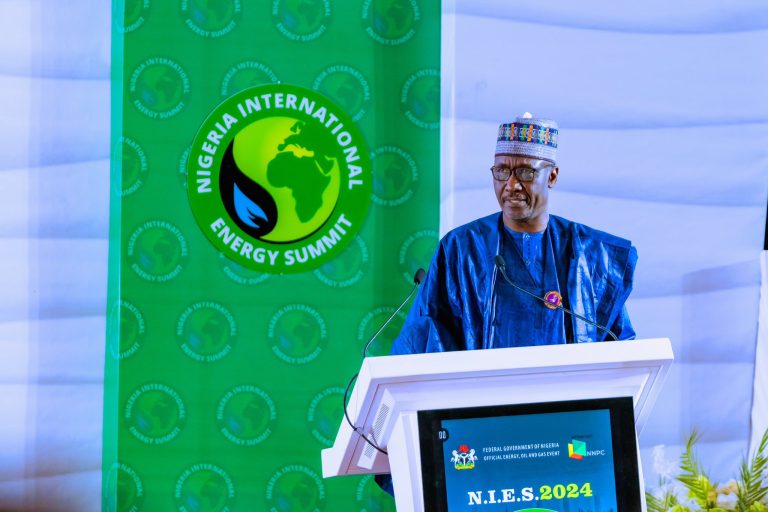The Nigerian National Petroleum Company Limited (NNPCL) said that within the next ten years, the energy shortages plaguing the nation will be resolved.
Mele Kyari, the Group Chief Executive Officer of NNPCL, revealed this information during the opening ceremony of the seventh Nigerian International Energy Summit in Abuja on Tuesday.
Olufemi Soneye, the Chief Corporate Communications Officer of NNPCL, issued a statement assuring stakeholders of the company’s dedication to collaborating with them to address the energy deficit and foster prosperity for Nigerians.
- “He assured stakeholders of the company’s commitment to work with them to close the energy deficit gap and create prosperity for Nigerians, adding that from all indications, all issues of energy scarcity in the country would be over in the next 10 years,” the statement reads in part.
Investment in Energy Infrastructure to drive Growth
As the largest partner to all the oil producing companies in Nigeria, NNPCL also assured stakeholders on investment in critical infrastructural projects to drive growth in the energy sector.
According to Kyari, the Obiafu-Obrikom-Oben Pipeline is approaching completion, with ongoing tunneling operations across the River Niger.
He further noted that NNPC Ltd., by its foundational mandate to safeguard national energy security, aims to ensure that the divested assets are managed to yield sustainable and high levels of production, thereby providing energy security for the good of Nigerians.
- “He explained that by virtue of its statutory mandate as the enabler of national energy security, NNPC Ltd.’s role is to ensure that, at the end of the day, there is optimal and sustainable production from the divested assets to guarantee energy security for the benefit of Nigerians.
- “Kyari also disclosed the company’s willingness to invest in the proposed African Energy Bank as a way of ensuring sustainable funding for energy projects in Africa to guarantee energy security.
- “On investment in energy infrastructure to drive energy security, the GCEO further disclosed that the completion of the Obiafu-Obrikom-Oben Pipeline was in sight as the tunnelling across the river Niger was currently ongoing,” the statement added.
What you should know
Despite the removal of fuel subsidy in May 2023, Nigeria still grapples with intermittent shortage of fuel at the retail level.
- Although NNPCL, Africa’s largest oil company, continues to assure the country that it has no plan to increase the price of PMS nationwide, many stakeholders believe that the current price of around N620/litre is still heavily subsided by the federal government.
- Moreover, the pump price of PMS has remained within a certain benchmark since the removal of subsidy despite the rise in Dollar and the international increase in the price of Brent Crude oil which currently sells at 82 dollars per barrel.
- Meanwhile, there were recent reports of motorists forced to spend hours in lines to buy fuel and causing prices to surge for transportation and basic commodities.
- In addition, the Nigerian Association of Road Transport Owners (NARTO), a union group for tanker drivers, embarked a nationwide strike over over rising operational costs due to the recent second devaluation of the naira currency within a year and over the state of the country’s roads, effectively causing prices of fuel to rise in places like Abuja and Lagos.
- Although the tanker drivers union have called off the strike, some retailers still charge as high as N650 to N680 for a liter of petrol.

